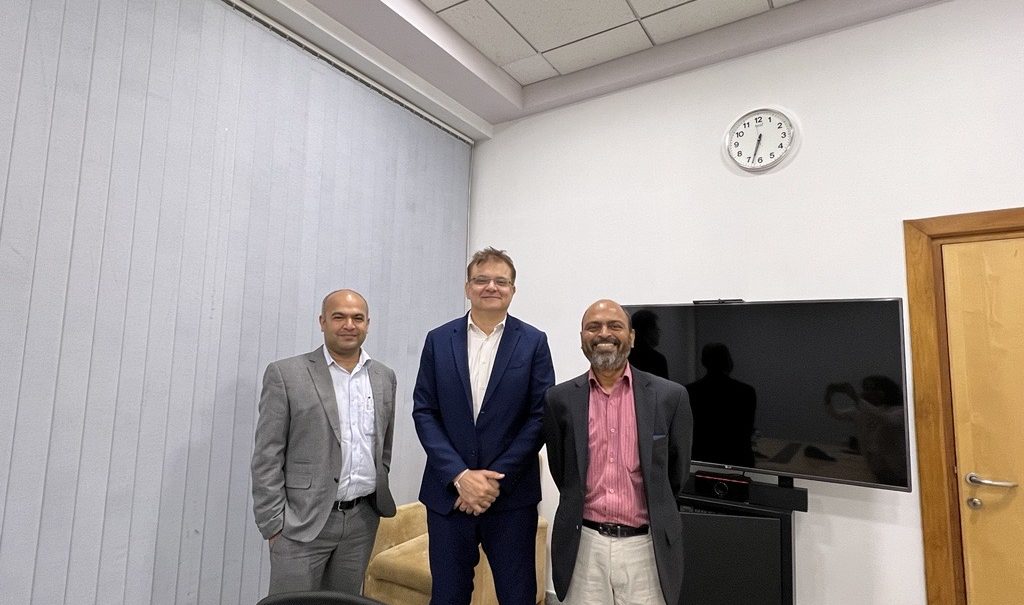Joined by a cause: Story of ISB-AAK partnership

In a giant leap towards connecting communities to markets for better and sustainable generation of livelihoods, ISB has recently collaborated with the Sweden-based AAK, a global company specializing in plant-based oils and fats. This partnership has the potential to be a significant breakthrough in sustainable sourcing of forest-based raw materials directly from communities by a company with operations in several countries. The NASDAQ listed company specializes in plant-based oils that add value ingredients in many products that are in popular consumption. “We make these products better tasting, healthier, and more sustainable. We enhance their sensory experience – by giving the silkier mouthfeel in premium chocolate, the juicier texture in a plant-based burger, and the puffier appearance in a lower-fat pastry” says AAK.
The company prides itself in sustainable sourcing and simultaneous investments in community development and has defined 17 global goals for a better world.
AAK’s Sustainability Report for 2021 demonstrated how sustainability is at the heart of the company’s purpose, Making Better Happen™, and how it is embedded in all parts of the AAK value chain – Making Better Happen from plant to brand.
AAK believes strongly in collaboration as a key to achieving sustainability. Through its Kolo Nafaso program for shea in West Africa, AAK increased their reach from 100,000 to 353,000 women through active engagement, pre-financing, training and education including training in sustainable practices. In addition to their traditional supply chain for shea, they also source the product directly from women’s groups. Since 2009, the program is focussed on poverty alleviation and women empowerment through direct trade, interest-free micro credits, and training programs. While AAK offers a long-term partnership with a purchase guarantee to women’s groups, the company reinforces women’s agency by vesting the power of decision making with the women.
The company is committed to contribute to several sustainable development goals like poverty alleviation, reducing hunger, gender equality, forge partnerships among others. The company is keen on sourcing raw materials that have been harvested without causing harm to the biodiversity.
In that vein, AAK and ISB are keen to formalise the collaboration since this partnership is directly aligned with AAK’s sustainability goals and ISB’s Initiative on the Forest Economy.
During a meeting at Indian School Business, Dheeraj Talreja President for South Asia, Anubhav Shrivastava, Director Sourcing, Trading, Risk Management/ESG for South Asia, Prof. Ashwini Chhatre, Associate Professor and Executive Director of Bharti Institute of Public Policy, and Sushma Kattamuri, Corporate Engagement Specialist at ISB discussed potential avenues for collaboration.
The AAK team emphasized their interest to source and procure multiple Seasonal Forest Products from communities with security of tenure, starting with Sal seeds. They are keen to ramp up their technological facilities within a year to procure other Seasonal Forest Products as well.
Currently, the collaboration with AAK will create value in the first mile of the supply chains and formalize the participation of communities as well as ensure security of tenure through mechanization, capacity building, financial inclusion, and security of tenure. AAK and ISB have decided to explore possibilities of collaboration to devise research solutions for setting up machinery for local processing at the community enterprise. AAK has also promised to consider formally endorsing the CFR model for sustainable harvesting and boosting the rural economy.
AAK is keen to work with ISB on upscaling security of tenure across India’s forests. AAK envisions to source raw material from India and sell the final products in the country itself. AAK is especially interested in Sal and any forest products that can be harvested from the forest in a sustainable manner. ISB & AAK are actively working to finalize a formal collaboration towards sustainable forest economy outcomes.
